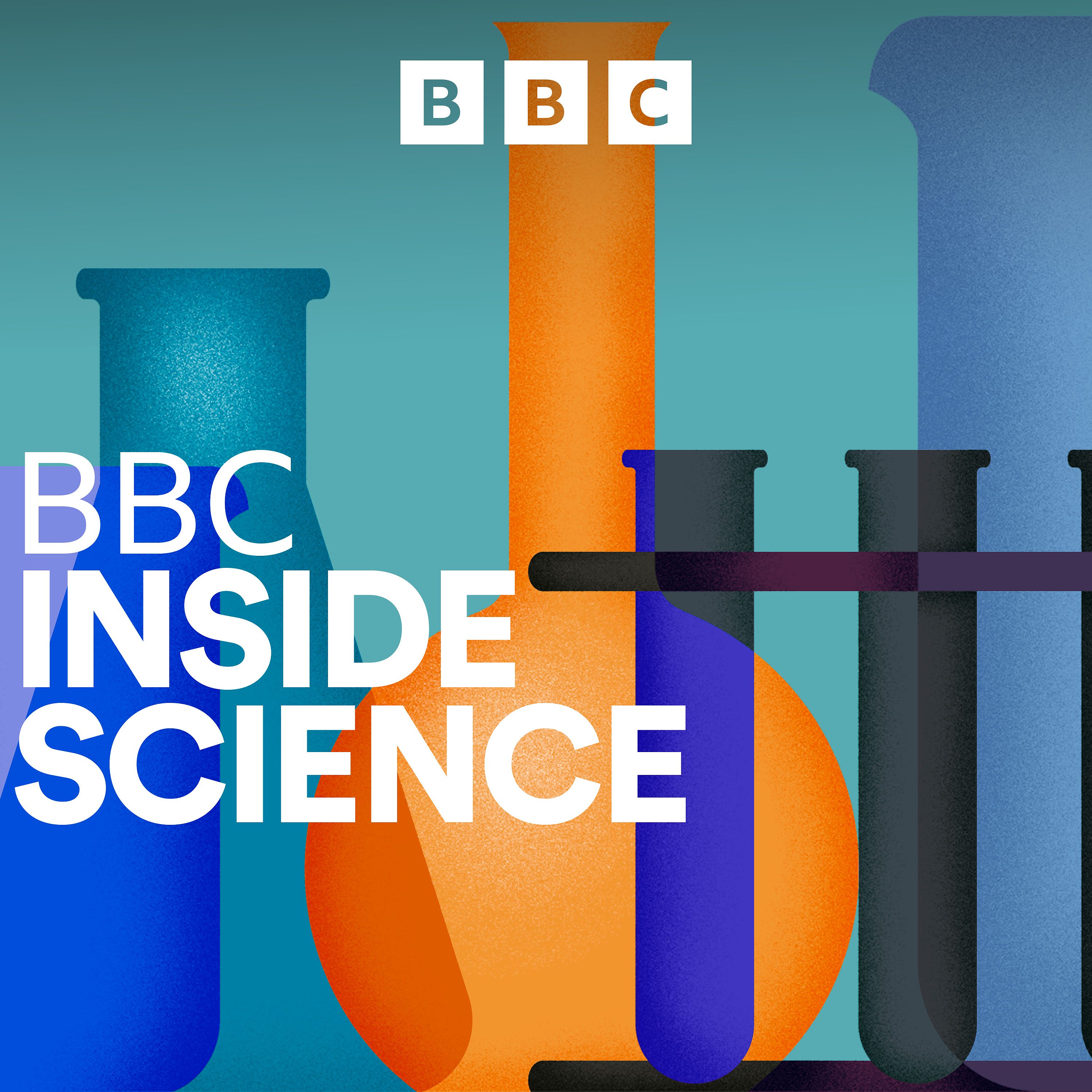

BBC Inside Science
BBC Radio 4
A weekly programme that illuminates the mysteries and challenges the controversies behind the science that's changing our world.
Episodes
Mentioned books

10 snips
Feb 6, 2025 • 28min
Science in 2025
Tom Whipple, science editor of The Times, and Penny Sarchet, commissioning editor at New Scientist, unveil the intriguing scientific landscape of 2025. They delve into advancements like the European Spallation Source's materials research and SpaceX’s plans for space exploration. The conversation takes a quirky turn with the challenges of creating new elements and the baffling behaviors of orca communities. Expect a mix of serious insight and light-hearted fun, complete with humorous moments, including a guest in a banana costume!

28 snips
Jan 30, 2025 • 28min
The Science of Laughter
Sophie Scott, a neuroscientist from University College London and laughter expert, joins comedian Miles Jupp, known for his engaging work in radio and television. They dive into why we laugh more in social settings and explore the evolutionary history of laughter. Discover the unique aspects of human laughter compared to animals, and the health benefits tied to chuckling. They even touch on laughter yoga, its effects, and how shared laughter can boost well-being, all while keeping the conversation light-hearted and entertaining!

12 snips
Jan 23, 2025 • 28min
Board Game Science
Dive into the fascinating world of board games during the festive season! Discover the ancient Royal Game of Ur and its surprising similarities to modern games. Explore why we love playing games with insights from a neuroscientist, and unravel the math behind the game 'Dobble.' Enjoy a playful competition with lighthearted banter and reflections on the joy of games. Plus, a festive puzzle awaits as you try to identify the symbols on the missing Dobble cards!

20 snips
Jan 16, 2025 • 28min
The Year in Science
Join Libby Jackson, Head of Space Exploration at the UK Space Agency, Mark Miodownik, a materials scientist from University College London, and Penny Sarchet, Managing Editor of New Scientist, as they reflect on a groundbreaking year in science. They dive into billionaires venturing into space, record-breaking temperatures, and the rise of innovative weight-loss drugs. Hilarious stories about AI learning sarcasm and orcas donning 'salmon hats' add a light touch to their serious discussions on climate change, Mars exploration, and scientific progress.

10 snips
Jan 9, 2025 • 28min
The rising threat of bird flu
In this engaging discussion, Lizzie Gibney, a Senior Physics Reporter at Nature, dives into the complexities of antimatter transport. The experts also tackle the alarming rise of H5N1 bird flu, with discussions on its mutations and potential for human transmission. They reflect on the delicate balance between humans and polar bears in Churchill, Manitoba, and explore the remarkable migratory journeys of animals. This blend of virology, conservation, and cutting-edge physics makes for a captivating listen!

48 snips
Jan 2, 2025 • 28min
Fact-checking the Bovaer backlash
Public protests erupt over Bovaer, a cow feed additive designed to cut methane emissions, with viral videos showing discarded dairy products. Experts dissect the science behind methane production in ruminants and the effectiveness of Bovaer amidst safety debates. Meanwhile, billionaire ambitions for space colonization raise questions about solving Earth's environmental challenges. Discussions on failed UN negotiations highlight the plastic waste crisis, while orcas amusingly sport salmon hats, signaling complex concerns for both the whales and their food supply.

27 snips
Dec 26, 2024 • 28min
Is flood forecasting failing?
In this enlightening conversation, Steve Fletcher, a Professor specializing in plastic pollution, joins to discuss the pressing issues surrounding flood forecasting. They probe into recent flood events in Pontypridd, questioning the effectiveness of current warning systems. Delving into the relationship between our microbiomes and social ties, they also explore how shared microbes can influence health. Plus, they tackle the urgent need for sustainable plastic solutions amidst the global pollution crisis and the mixed outcomes of the latest climate summit.

30 snips
Dec 19, 2024 • 28min
The climate cost of war
Benjamin Neimark, a senior lecturer at Queen Mary University, discusses the daunting carbon footprint of warfare, emphasizing how conflicts in places like Ukraine and Gaza significantly impact climate change. He advocates for transparency in military emissions reporting, revealing the urgent need for accurate data to assess environmental costs. Meanwhile, Sarah Facey highlights the destructive eight-toothed spruce bark beetle, which threatens Christmas tree supplies and illustrates climate change's broader ecological threats. Together, they shed light on how war and nature intertwine with dire consequences.

12 snips
Dec 12, 2024 • 28min
Nuclear medicine shortages and Jane Goodall on COP29
In this engaging discussion, Jane Goodall, the renowned conservationist and primatologist, reflects on her lifelong work with chimpanzees and the urgent need for climate action as COP29 approaches. Simon Middleborough dives into the alarming shortage of medical isotopes crucial for cancer diagnosis, explaining how aging reactors impact health outcomes. Volcanologist Robin George Andrews tackles the bold idea of disposing of nuclear waste in volcanoes, uncovering its feasibility. This captivating conversation intertwines wildlife conservation with pressing medical and environmental issues.

115 snips
Dec 5, 2024 • 28min
COP29: Are climate summits working?
Joanna Depledge, an expert in international climate negotiations, joins climate change professor Mark Maslin and energy policy professor Jim Watson to tackle the effectiveness of climate summits. They assess the current urgency around COP29 and discuss the challenges of achieving meaningful outcomes. The trio dives into the historical context of major agreements like Kyoto and Paris, and the impacts of political shifts, highlighting the crucial role of climate finance. They also explore the unique dynamics of negotiations, including how even food and ambiance can influence discussions at these critical meetings.


